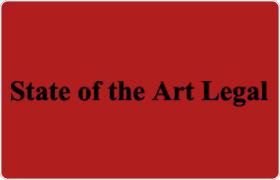Pompano Beach White Collar Crime Lawyer, Florida
Sponsored Law Firm
-
 x
x

Click For More Info:
-
State of the Art Legal
200 S.E. 1st Street Suite 505 Miami, FL 33131» view mapCriminal Defense Law Expert Legal Defense
If you're facing a difficult situation, you may benefit from having a lawyer from State of the Art Legal represent you. Call our office in Miami, FL, to set up your appointment.
800-826-0121
Jay Arnesen
DUI-DWI, Felony, Misdemeanor, White Collar Crime
Status: In Good Standing Licensed: 20 Years
FREE CONSULTATION
CONTACTLorraine Brennan O'Neil
Personal Injury, Divorce, White Collar Crime, Wills & Probate
Status: In Good Standing Licensed: 35 Years
 Joshua Alexander Miami, FL
Joshua Alexander Miami, FL Practice AreasExpertise
Practice AreasExpertise
